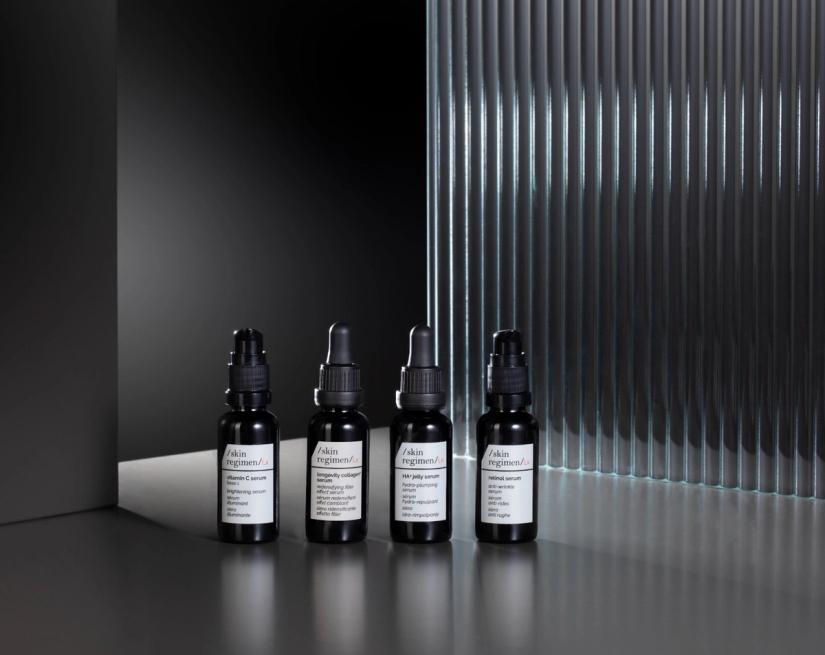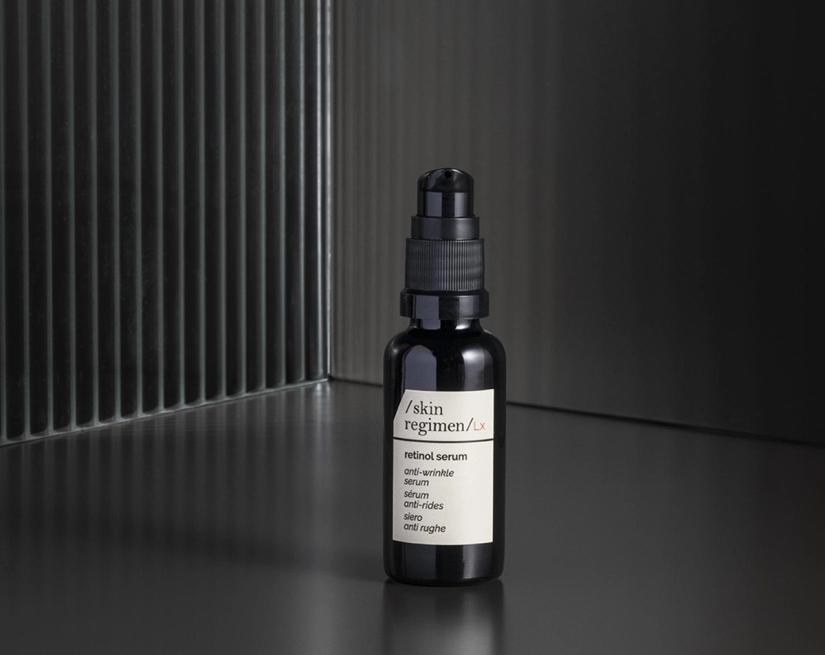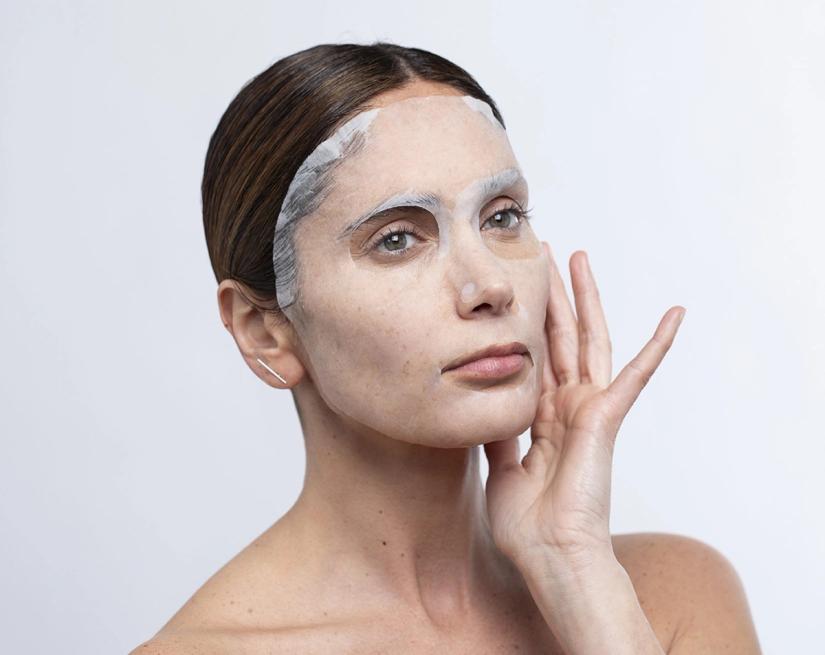skin care
Retinol & Vitamin C: The Ultimate Skincare Duo for Radiant Skin
Eve Mérinville | Corporate RD Excellence & SC RD and Innovation Director
8 min read

There are some skincare ingredients that must be used in combination with others to work well, and others powerful enough to benefit the skin on their own. Adding products containing the effective ingredients retinol and vitamin C to your daily skin care routine provides maximum benefit because they work well as standalone products while also working well with others.
Retinol as a sole treatment is extremely effective for stimulating collagen production, treating acne, tightening the skin, softening skin texture, and balancing skin pigment. Vitamin C products can single-handedly brighten tired skin, improve skin health by shielding the skin from pollutants and sun damage, treat hyperpigmentation, and reduce skin inflammation and redness.
Used separately, these two ingredients can target specific skin conditions, but when used together, retinol and vitamin C create the ultimate skin-beautifying duo for any skin type. Before we divulge the benefits of using this powerful skincare combination in unison, it helps to understand why and how these two ingredients work so well individually.
How Does Retinol Work?
Retinol is a form of vitamin A which aids the body in cellular turnover. Retinol products prompt the body to shed dead, dull skin cells and replace them with new, strong, radiant cells.
Dead skin cells occur naturally, but environmental stressors like pollution, dirt, UV rays, and debris can cause cell buildup and make skin dry and discolored. Additionally, air pollutants are linked to a number of skin conditions like eczema, skin aging, dermatitis, acne, and psoriasis.
How Does Vitamin C Work?
Vitamin C treatments are used to achieve bright and radiant-looking skin. Vitamin C products are common components of anti-aging skincare routines because they lighten hyperpigmentation, revive tired skin, reduce dark spots, and fill fine lines and wrinkles.
Additionally, vitamin C (which is called L-ascorbic acid on a chemical level) is an antioxidant. Antioxidants neutralize free radicals, unstable molecules that are known to cause cancer, diabetes, eye diseases, and various other life-threatening conditions. This means antioxidant skin care products like vitamin C do more than just give you glowing skin—they also protect you from serious medical conditions.
How Do Retinol and Vitamin C Work Together?
There's a common misconception that retinol and vitamin C don't work well together due to their contrasting pH levels. Your skin requires a low pH level (0 to about 3.5) to absorb vitamin C, but to absorb retinol, the pH level must be higher (around 5.5 to 6). When you mix vitamin C and retinol, the pH of vitamin C increases and the pH of retinol decreases, which is why some believed that the two ingredients render each other ineffective.
Fortunately, recent research shows that these two powerful ingredients can be combined. Together, they pack a powerful punch, reversing both natural aging and photoaging. Additionally, vitamin C stabilizes retinol, increasing its effectiveness.
The Benefits Of Retinol and Vitamin C
Retinol and vitamin C products are the ultimate skincare power couple. Retinol stimulates collagen production, the protein responsible for giving our skin its firmness and suppleness, while vitamin C provides the glue that holds cells together when collagen is produced. In combination, retinol and vitamin C produce youthful skin with minimal fine lines, wrinkles, dark spots, and blemishes. Additionally, combining vitamin C and retinol in your skin care routine improves the skin barrier, protecting the skin from the harmful environmental factors that cause skin damage and premature skin aging.
Consistent and proper use of Retinol and vitamin C can benefit your skin by:
- Brightening skin
- Evening skin tone
- Firming and tightening skin
- Treating acne and acne scars
- Lightening hyperpigmentation
- Providing anti-inflammatory effects
- Reducing the appearance of wrinkles and fine lines
Tips For Using Retinol And Vitamin C
- Start off slowly
- Always use sunscreen
- Be weary of harsh products
- Hydrate
- Be patient
Start Off Slowly
As with any skincare product or ingredient, start off slowly. Integrate new ingredients progressively, and carefully observe how your skin reacts to each new addition.
Retinol and vitamin C are highly effective treatments, but they can be rather intense for those with sensitive skin. Integrating them into your skincare routine too quickly may cause your skin to become dry, flaky, red, or inflamed.
Depending on your skin type and tolerance, you may be able to use these products three times a week up to daily. Begin with a once-a-week routine. If you don't experience an adverse reaction, try slowly increasing your usage.
Always Wear Sunscreen
Sunscreen is a vital product for every skincare routine, no matter what skin type you have. Not only does sun exposure account for 90% of skin aging, but also about 90% of nonmelanoma skin cancers are associated with exposure to UV radiation from the sun.
Retinol products thin the skin barrier and increase its sensitivity to the sun's UV rays, so it's important to wear sunscreen when using them. Although vitamin C's antioxidant properties support a healthy skin barrier, which protects the skin from UV rays, you should still add a layer of sunscreen for increased protection from sun damage. The American Academy of Dermatology advises that you apply sunscreen every day, no matter how cloudy or rainy.

Be Weary Of Combining Harsh Ingredients
The active ingredient in retinol is retinoic acid, while the active ingredient in vitamin C is L-ascorbic acid. Active ingredients are ingredients which penetrate the skin, healing it on a cellular level. While active ingredients are excellent for your skin, they can also leave it irritated or inflamed if you overload your routine with them.
Many people already use products containing beta hydroxy acids (BHAs) or alpha hydroxy acids (AHAs) in their daily skincare routine. AHAs (such as lactic acid and glycolic acid) and BHAs (like salicylic acid) act as natural skin exfoliants.
Each of these powerful ingredients (retinol, vitamin C, BHAs and AHAs) increases the skin's sensitivity, and using all of them together can irritate your skin. If you're using retinol or vitamin C with a natural acid, try alternating them to avoid skin irritation. For example, try applying a BHA or AHA to your skin in the morning and applying a natural retinol serum or vitamin C in your nighttime routine to avoid skin sensitivity from sun exposure. You could also try a staggered approach—use a BHA one night and retinol or vitamin C the next.
Hydrate, Hydrate, Hydrate
Retinol can have a considerable drying effect on the skin, especially when you first integrate it into your skincare routine. As your skin tries to adjust to this powerful ingredient, you may notice an increase in dry, flaky skin cells. Additionally, as retinol purges your skin of old skin cells to make way for new skin cells, these old skin cells start to flake away at the surface. Regardless of the skin type (dry skin, oily skin, sensitive skin, or combination skin) anyone can experience this dehydrated side effect.
Vitamin C is a proven, natural moisturizer that reduces water loss from our skin, but additional moisture is still necessary to keep your skin hydrated, particularly when first adding these ingredients to your routine.
One way to increase skin hydration is to add hyaluronic acid to your daily skincare routine. Hyaluronic acid is a highly effective moisturizer that works wonders when combined with vitamin C and retinol.
Morning routine suggestion: In the morning, after applying your vitamin C serum, follow it with a layer of hydrating hyaluronic acid.
Nightly routine suggestion: In your nightly routine, apply hyaluronic acid serum before retinol, as it can increase its effectiveness while also helping to lock moisture in for maximum hydration. After applying retinol, apply an additional moisturizing cream to seal in the underlying ingredients and prevent them from evaporating.
Be Patient
It takes time to see results from new skincare products. Many people grow impatient when trying out a new product and oust it from their routine before benefits take effect. However, dermatologists estimate that it can take up to 3 months for your skin to experience the full benefits of ingredients that alter cell behavior, like retinol and vitamin C. Commit to trying new products for at least 3 months before changing your skincare regimen to experience real benefit.
Ways To Combine Retinol and Vitamin C
While retinol and vitamin C do work well together, some people prefer to space out their use. Here are two common ways vitamin C and retinol are added to the daily skincare routine to prevent skin sensitivity.
Use Vitamin C In The Morning And Retinol at Night
Using vitamin C in the morning and retinol at night provides your skin with the ultimate brightening and firming treatment.
Vitamin C visibly brightens your skin, so many people prefer to apply vitamin C in the morning—after all, who doesn't want to start the day off with visibly brighter skin? Vitamin C also creates a protective barrier that defends the skin from the sun's intense UV rays and the unpleasant photoaging effects they cause. Applying a vitamin C booster serum in the morning followed by a sunscreen with an SPF of at least 30 will preserve your skin's youth and improve the appearance of dark spots.
Dermatologists recommend you use retinol at night since it increases the skin's sensitivity, making it more susceptible to damage or irritation from heat and the sun's UV rays. At night, apply a natural retinol serum that will tighten the skin and mitigate wrinkles, fine lines, and other imperfections while you sleep.
Alternate Between Retinol And Vitamin C Each Night
Do you already love your morning skincare routine? Add vitamin C and retinol at night instead to reap the benefits without changing up what's already working well.
To reap the benefits of retinol and vitamin C without irritating or inflaming your skin, try using retinol one night and vitamin C the next. Over time, you'll start to notice radiant, firm skin from this nightly routine.
Maximize Your Skincare Routine With Comfort Zone's Vitamin C And Retinol Products
Your skincare routine should work for you. When you add powerful ingredients like vitamin C and retinol, you're ensuring your skin is protected from environmental stressors, harmful UV rays, and the negative effects of free radicals.
All Comfort Zone products are vegan, cruelty free, and sustainable, so you can get skin you feel comfortable in without harming the planet.



